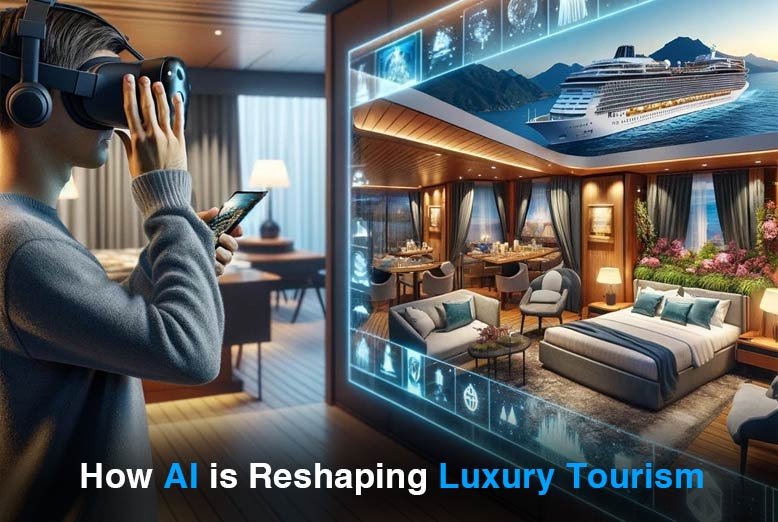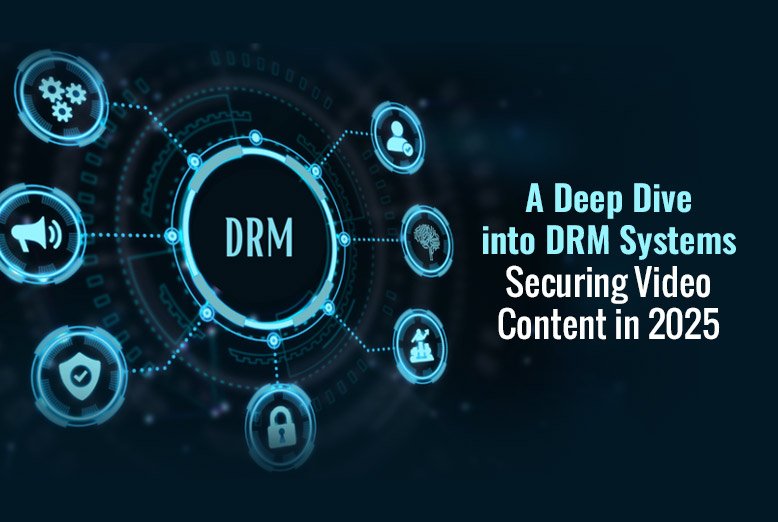In recent years, artificial intelligence (AI) has become a transformative force across various industries, and luxury tourism is no exception. As travellers increasingly seek personalised, immersive, and seamless experiences, luxury tourism providers are embracing AI to exceed these expectations. From bespoke recommendations to predictive analytics, AI is changing how luxury brands engage with guests and deliver memorable experiences that feel both exclusive and effortless.
For hospitality professionals keen on harnessing these advancements, studying luxury accommodations provides a strategic advantage, equipping them with the skills to lead innovation in the industry. This article explores how AI is reshaping luxury tourism, offering insights into the technologies that define its future.
Personalisation at Scale: Creating Bespoke Experiences
One of AI’s most powerful applications in luxury tourism is its ability to create highly personalised guest experiences on a large scale. AI-driven systems can analyse vast amounts of data, from past bookings and preferences to social media activity, enabling hotels and travel companies to predict what guests want before they even arrive. According to a McKinsey report, personalisation can lead to revenue increases of up to 15%, demonstrating its financial potential for luxury brands.
Imagine a guest who has previously enjoyed wine-tasting tours in Tuscany. An AI system might suggest similar experiences at the guest’s next destination, crafting a customised itinerary that reflects their unique interests. Luxury hotel brands like the Ritz-Carlton and Four Seasons are already using AI-driven personalisation engines to anticipate guest preferences, creating tailored experiences that redefine the standard of service.
Enhancing Service with Predictive Analytics
Predictive analytics—powered by AI—enables luxury tourism providers to foresee and fulfil guest needs in real-time. By analysing patterns in guest behaviour, these systems can make proactive recommendations or even adjust amenities to suit the individual. For instance, AI might detect that a guest often orders a particular type of wine or requests late checkouts, allowing the hotel to offer these options without the guest needing to ask.
Hilton Hotels has implemented AI-driven predictive analytics to optimise operations, from inventory management to staffing, creating a seamless experience that feels spontaneous yet well-thought-out. By automating these processes, luxury brands can provide attentive service with minimal wait times and fewer disruptions, elevating the overall guest experience.
The Role of Chatbots in Luxury Tourism
AI-powered chatbots are now a staple of the travel industry, but in luxury tourism, they have evolved beyond basic customer support. Luxury brands are employing chatbots as digital concierges, available 24/7 to assist guests with everything from booking spa treatments to providing local recommendations. These bots are designed to respond with empathy and nuance, ensuring guests feel valued and understood.
A notable example is Marriott’s chatbot, which assists guests with inquiries and personalised suggestions before and during their stay. This level of interaction is particularly valuable in luxury tourism, where prompt, thoughtful responses are a hallmark of high-end service. According to Gartner, by 2025, 47% of organisations will use chatbots to assist with customer interactions, highlighting their growing role across industries, including luxury tourism.
Streamlining the Booking Process with AI
The booking process in luxury tourism is often complex, involving multiple customisation options and personalised requests. AI simplifies this process by offering a seamless booking experience that aligns with guests’ preferences and travel histories. Machine learning algorithms can suggest room types, activity packages, and exclusive services, ensuring that every aspect of the booking is precisely tailored to the guest.
Luxury travel agencies like Virtuoso are integrating AI to match clients with the perfect travel experiences, based on extensive data analysis. These systems not only speed up booking times but also provide guests with highly relevant choices, saving them the hassle of sorting through endless options.
AI and Augmented Reality: The Future of Virtual Tours
For luxury tourism brands, providing an immersive pre-arrival experience can be a powerful tool in enhancing guest satisfaction. AI, paired with augmented reality (AR), allows prospective guests to explore hotel rooms, villas, and even entire resorts before booking. Virtual tours enable guests to see and experience spaces digitally, providing a glimpse of what they can expect.
Companies like Marriott International and Wyndham Hotels have introduced virtual tours for prospective clients, allowing them to explore accommodations and amenities from anywhere in the world. This technology not only aids in decision-making but also adds a layer of transparency and trust, two critical factors in the luxury travel segment.
AI for Sustainability in Luxury Tourism
Sustainability is increasingly important to luxury travellers, with a Booking.com study showing that 83% of global travellers want eco-friendly travel options. AI can play a significant role in helping luxury hotels reduce their environmental impact by optimising energy use, reducing waste, and managing resources more efficiently.
For example, AI-driven energy management systems can monitor and adjust heating, cooling, and lighting based on occupancy, significantly reducing energy consumption. In tropical locations where cooling systems are crucial, this technology can make a substantial difference in the property’s carbon footprint. Brands like Six Senses have started incorporating AI to monitor and reduce energy use, reflecting the industry’s commitment to sustainable practices.
Facial Recognition for Enhanced Security and Personalisation
Facial recognition technology, powered by AI, is making its way into luxury tourism as a tool for both security and personalisation. At some luxury resorts, facial recognition is used to streamline check-ins and enhance security, eliminating the need for physical key cards. This technology allows guests to enter their rooms and access facilities without hassle, providing a secure yet seamless experience.
Some hotels in Asia have begun experimenting with facial recognition to recognise returning guests, allowing for a more personalised welcome. This use of AI-driven technology creates a smooth, discreet service experience that reflects the essence of luxury—effortless, efficient, and exclusive.
Language Processing for Enhanced Communication
The language barrier has long been a challenge in international luxury tourism, where guests expect smooth communication in their preferred language. AI-driven language processing and translation tools are bridging this gap, allowing luxury hotels and resorts to interact with guests in multiple languages with ease and accuracy.
Brands like AccorHotels are already implementing AI-powered translation tools to ensure clear and efficient communication, regardless of the guest’s native language. This AI application enhances the guest experience by eliminating language obstacles, allowing guests to engage confidently and fully with the services and amenities on offer.
Data-Driven Insights for Strategic Decision-Making
AI doesn’t just enhance the guest experience—it also provides valuable data that luxury brands can use to make strategic decisions. By analysing data on guest preferences, feedback, and booking patterns, luxury hotels can refine their offerings to meet evolving demands. For instance, if data shows a high demand for wellness experiences, a resort might expand its spa services or wellness programs.
According to Deloitte, data-driven decision-making is a key advantage of AI, as it enables companies to identify trends and forecast demand more accurately. This capability allows luxury tourism providers to stay agile, adapting their services to meet the nuanced preferences of their clientele.
Autonomous Vehicles and AI for Efficient Transportation
Luxury travel is about convenience, and nothing exemplifies this better than the integration of AI in guest transportation. From autonomous shuttles to self-driving cars, AI-powered vehicles are revolutionising how guests move within luxury resorts or between sites. Resorts in Dubai and Singapore are exploring autonomous vehicle options for seamless guest transportation, which reduces wait times and enhances the feeling of exclusivity.
In addition to transportation within properties, some high-end travel agencies are experimenting with autonomous vehicles as part of the broader luxury experience. This is particularly appealing in destination resorts, where guests might want to explore nearby areas without the hassle of conventional transportation.
The Future of AI in Luxury Tourism
As AI continues to advance, its role in luxury tourism will only deepen, redefining the standards of personalised service, sustainability, and convenience. The future of AI in luxury travel will likely include even more sophisticated data analytics, real-time personalisation, and advanced automation tools that handle everything from booking to checkout. AI holds the potential to transform luxury travel into an experience that feels both human and hyper-personalised, allowing brands to anticipate and cater to guests’ every need.
For hospitality professionals and aspiring luxury tourism leaders, mastering AI-driven strategies will be essential. Pursuing an education in luxury management offers a foundation for understanding how to leverage these technologies to deliver unforgettable experiences in an industry that thrives on excellence and innovation. The impact of AI on luxury tourism is only beginning, and those who harness its potential will help shape the future of travel.
In this AI-driven era, luxury is not just about material opulence; it’s about anticipation, connection, and creating moments that feel effortlessly tailored—qualities that are now within reach thanks to the power of artificial intelligence.















